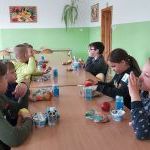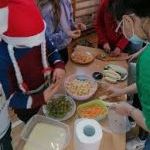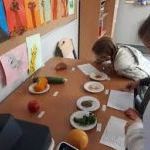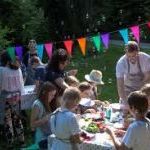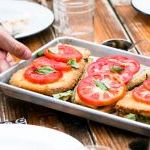Chrumas Cooks
In the Chrumas Cooks project, children learn the principles of healthy nutrition by becoming familiar with the benefits of a diet rich in fruits, vegetables and dairy products. They also learn about food origins, cultivation and production, as well as how to avoid wasting food. A package of educational materials is available, including a suite of educational films based on culinary workshops, a guide for teachers, a brochure for children, a guide for parents and a manual for schools on how to use the resources.
Website
Chrumas cooks - tools for culinary education
Useful links
Country
Media
* TOP TIP *
'Design a planet friendly menu so everyone knows how the food they are eating is helping the planet'
How is the project linked to climate change & sustainability?
Throughout the project, children learn how to choose seasonal and local produce which helps reduce greenhouse gas emissions by reducing the use of fossil fuels to transport food. They learn about the environmental impact of food production and about agricultural production methods which support biodiversity and environmental protection. In this way children learn that climate change can be offset through sensible and sustainable food choices.
How are the participants involved?
Educational activities are one of the basic elements of the Chumras Cooks project. Whilst this is primarily a schools project, due to the Covid pandemic over the past few years, much of the education work has moved to the family home. During 2021, the project focused on the important role of parents in supporting the eating habits of children. In cooperation with the children's parents, efforts were made to nurture the principles that the school program focuses on during a normal school year. Parents worked with children to look at diets rich in fruits, vegetables, and dairy products. They also investigated the importance of breakfast for the proper functioning of the body, as well as the value of spending time together and building parent-child eating relationships.
Key steps
- Schools apply to join the project
- Schools are given access to all of the project's educational resources.
- Teachers run cooking workshops with pupils.
- Pupils cook and at the same time learn about healthy lifestyles, healthy eating and planet friendly food.

